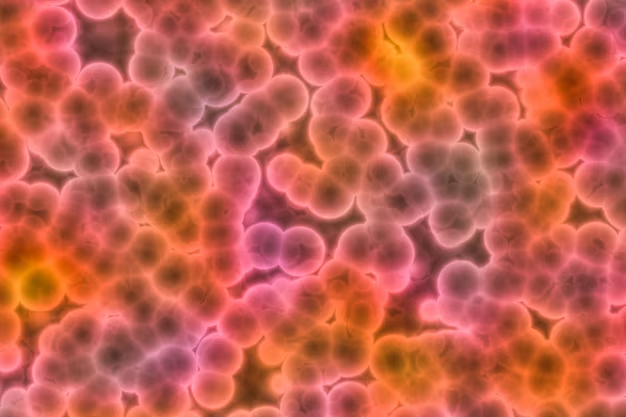Understanding Cancer: The Intricate Journey from Cell to Tumor
When we hear the word "cancer," it can often evoke feelings of fear and uncertainty. Yet, understanding how cancer develops gives us invaluable insights into one of the most significant challenges facing modern medicine. Throughout this article, we will demystify the complex processes that lead to cancer, explore the different types of cancer, and provide a clearer picture of what's happening at a cellular level.
What Triggers Cancer? The Mystery Beneath the Surface
Cancer begins at the cellular level with a mutation—a change in the DNA sequence of a cell. These mutations, while often repaired by the body's natural systems, can sometimes take root, leading cells to multiply uncontrollably. While diseases like diabetes or heart disease are caused by dysfunction in biological processes, cancer is unique because it arises from the very mechanism of life: cell division.
The Role of DNA in Cancer
DNA, the blueprint of life, governs how cells function, grow, and reproduce. Mutations in DNA can be caused by:
- Environmental Factors: Exposure to carcinogens like tobacco smoke and UV radiation can damage DNA.
- Genetic Factors: Some people inherit genetic predispositions that increase their risk of cancer.
- Random Errors: Cell division is a complex process and sometimes results in random copying errors.
How Mutations Lead to Cancer
Not all mutations lead to cancer. Key mutations in specific genes are usually required:
- Oncogenes: When mutated, these genes drive excessive cell division.
- Tumor Suppressor Genes: Normally, they prevent uncontrolled cell growth; mutations inactivate them.
- DNA Repair Genes: Errors in these genes make it harder for cells to fix DNA mistakes.
The Progression from Mutation to Tumor
Cancer development is a multistep process involving several stages:
1. Initiation
A cell incurs a mutation, but this alone typically isn't enough to cause cancer, as the body often repairs or destroys the faulty cell.
2. Promotion
Within a conducive environment, the mutated cell begins to multiply. Factors such as hormones and chronic inflammation can create favorable conditions for this stage.
3. Progression
As more mutations accumulate, the mutated cells become increasingly abnormal, leading to the formation of a benign tumor—a mass of cells that may remain localized and non-invasive.
4. Malignancy
If further mutations allow tumor cells to invade surrounding tissues and metastasize (spread) to other body parts, the tumor becomes malignant, qualifying as cancer.
Understanding Metastasis
Metastasis is a critical factor that differentiates benign tumors from malignant cancers. Cancer cells break away from the primary tumor, navigate the bloodstream or lymphatic system, and settle in new tissues, continuing their relentless growth.
The Complex Types and Categories of Cancer
Cancer is not a single disease but a collection of related diseases. Understanding its diversity is key.
Carcinomas
Originating in epithelial cells, these are the most common types of cancer, including those affecting the breast, lung, and prostate.
Sarcomas
Arising from connective tissues like bone, muscle, or fat, sarcomas are rarer but crucial to understand due to their aggressive nature.
Leukemias and Lymphomas
These cancers begin in blood-forming tissues, impacting the body's capacity to fight infection and distribute oxygen.
Brain and Spinal Cord Tumors
Affecting the central nervous system, these tumors can disrupt essential bodily functions even if they're benign.
The Importance of Early Detection and Prevention
Preventing cancer or catching it in its early stages significantly increases the chances of successful treatment outcomes. Here are some mainstays of cancer prevention:
Lifestyle Modifications
- Quit Smoking: Smoking is a leading cancer risk factor; quitting dramatically reduces this risk.
- Maintain a Healthy Diet: Consuming fruits, vegetables, and whole grains can help lower the risk.
- Exercise Regularly: Physical activity plays a crucial role in maintaining overall health and reducing cancer risk.
- Limit Alcohol Intake: Excessive alcohol consumption has been linked with various types of cancer.
Regular Screenings and Vaccinations
- Screenings: Routine examinations, such as mammograms and colonoscopies, can detect cancer early.
- Vaccinations: Vaccines like the HPV vaccine can prevent infections linked to cancer development.
The Future of Cancer Research and Treatment
With ongoing scientific advancements, the future of cancer treatment is promising and rapidly evolving.
Precision Medicine
A treatment approach that considers individual variability in genes and lifestyle, making cancer treatment more effective and personalized.
Immunotherapy
It harnesses the power of the immune system to fight cancer, offering hope to patients with previously untreatable cancers.
Gene Editing
The potential of tools like CRISPR to correct cancer-causing mutations augurs a new era in cancer therapy.
Nanotechnology
The use of nanoparticles in drug delivery ensures that treatments specifically target cancer cells, minimizing damage to healthy tissue.
In conclusion, cancer is a multifaceted phenomenon rooted in genetic and environmental interplay. By understanding its mechanisms and risk factors, we can adopt preventative measures and support innovations in treatment. Our growing knowledge translates into hope—a hope that one day, cancer will lose its formidable grasp on human health.
Key Takeaways for Navigating the World of Cancer 🌟
- Mutations Are Central: Genetic changes are at the heart of cancer development.
- Multiple Triggers: Both genetic and environmental factors can initiate cancer.
- Different Types and Behaviors: Carcinomas, sarcomas, leukemias, and lymphomas each have unique characteristics.
- Early Detection Matters: Screenings and a healthy lifestyle are crucial in cancer prevention.
- Innovative Treatments on the Rise: Precision medicine and immunotherapy are paving new therapeutic pathways.
Stay informed and proactive about your health—knowledge is a powerful tool in the fight against cancer. 🌿

Related Articles
- Are Breast Cancer Lumps Painful
- Are Chills a Sign Of Cancer
- Are Colon Spasms a Sign Of Cancer
- Are Lytic Lesions Always Cancer
- Are Polyps Cancer
- Can a Blood Test Detect Cancer
- Can a Ct Scan Detect Cancer
- Can a Dexa Scan Show Cancer
- Can a Gastric Emptying Scan Show Cancer
- Can a Lung Biopsy Cause Cancer To Spread
